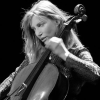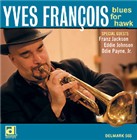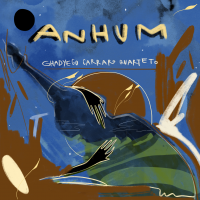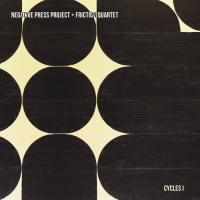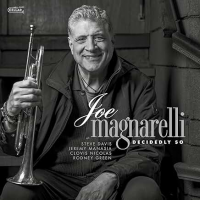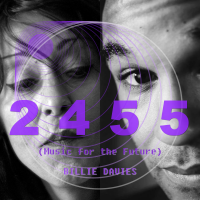Home » Jazz Articles » Album Review » Frances-Marie Uitti/Paul Griffiths: There Is Still Time
Frances-Marie Uitti/Paul Griffiths: There Is Still Time
There Is Still Time, featuring music composed and performed by cellist Frances-Marie Uitti and text written and spoken by Paul Griffiths, also challenges rigid categorization, even as it clearly fits within the contemporary composition purview represented by the New Series. Any preconception that an album of spoken word and solo cello is inherently self-limiting is laid to waste by the rich diversity Uitti and Griffiths have created.
Uitti is a cellist renowned for unconventional techniques that broaden the sonic possibilities of her instrument—including a multiplexity that allows her to create the impression of a larger string section in real time, without the use of overdubbing. And as much as she is known in the classical world, she's also recognized as an innovative improviser, as evidenced by her duet with bassist Mark Dresser, Sonomondo (Cryptogramophone, '00).
Griffiths' range is equally broad. In addition to over thirty years as an astutely observant music critic, he's written a number of novels, including the Commonwealth Writer's Prize-winning Myself and Marco Polo, and librettos, including Elliott Carter's What Next?. Griffiths enters the realm of performer for the first time on There Is Still Time, whose germination dates back to '97, where he first encountered Uitti.
In an unconventional move that is perfectly in keeping with the unorthodoxy of the performance, Griffiths has taken the speeches of Ophelia from Shakespeare's Hamlet—all 482 words of them—and created his own text, using only those words, but expanded and reworked into a greater context. With a minimalist sensibility, Griffiths often builds his text on repetition, gradual addition and permutation, finding innovative ways to express a myriad of emotions with a restricted vocabulary. His delivery ranges from gentle whisper to impassioned power.
Uitti's music integrates seamlessly with Griffiths' text. Ranging from the disturbing chaos in parts of "When This Is Over to the near-ambience of "I Cannot Remember, Uitti primarily utilizes a modal tuning that allows her to apply her extended techniques, including the use of two bows simultaneously, to evoke everything from gentility to intense drama.
Unorthodox even for ECM's unlimited world view, There Is Still Time is a vividly visual recording, with Uitti and Griffiths' performance building a compelling narrative that resonates long after it's over.
Visit Universal Classics on the web.
Track Listing
I Cannot Remember; Think Of That Day; How I Wish; Without Words I; Call From The Cold; Touching; There It Was; The Bells; Some Where; Without Words II; For You; I Did Look; Without Words III; My One Fear; Without Words IV; The Door; When This Is Over.
Personnel
Frances-Marie Uitti
celloFrances-Marie Uitti (cello music); Paul Griffiths (speaking voice, text)
Album information
Title: There Is Still Time | Year Released: 2005 | Record Label: ECM Records
Tags
PREVIOUS / NEXT
Support All About Jazz
 All About Jazz has been a pillar of jazz since 1995, championing it as an art form and, more importantly, supporting the musicians who make it. Our enduring commitment has made "AAJ" one of the most culturally important websites of its kind, read by hundreds of thousands of fans, musicians and industry figures every month.
All About Jazz has been a pillar of jazz since 1995, championing it as an art form and, more importantly, supporting the musicians who make it. Our enduring commitment has made "AAJ" one of the most culturally important websites of its kind, read by hundreds of thousands of fans, musicians and industry figures every month.



